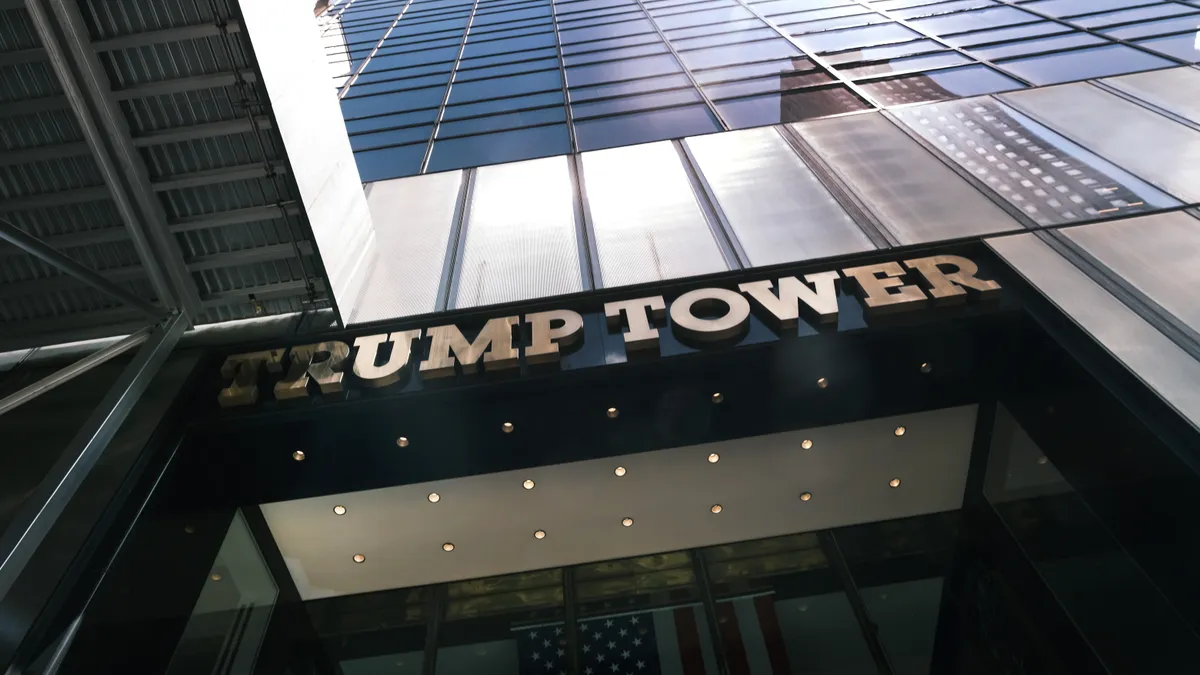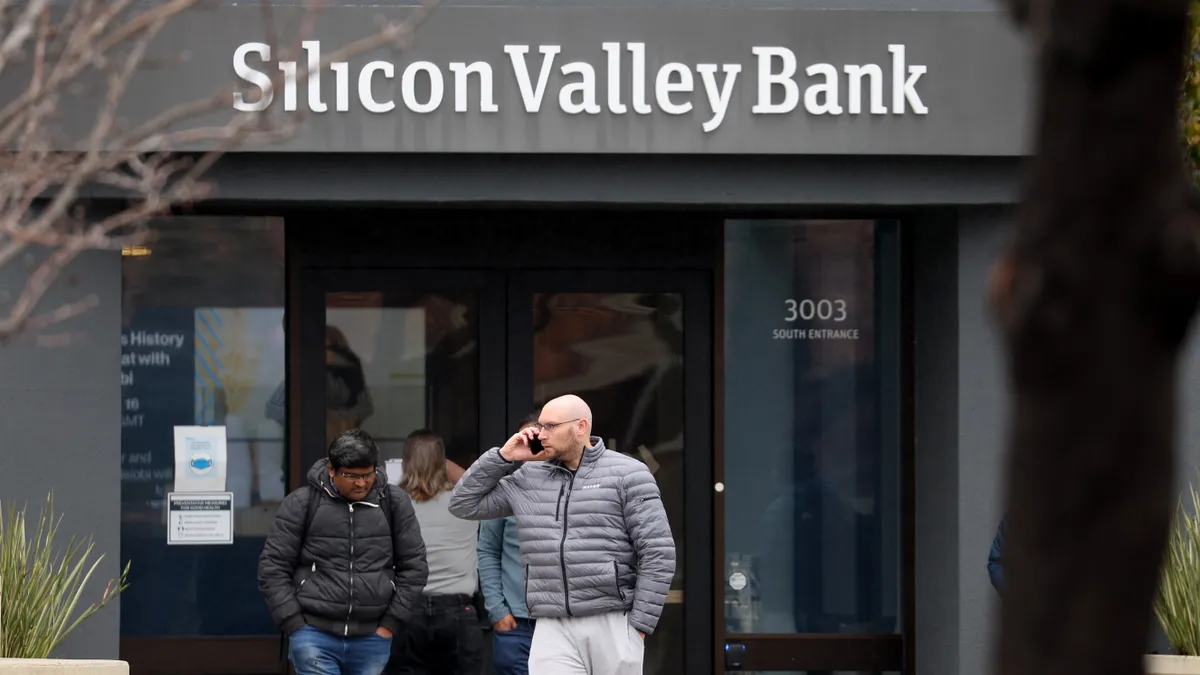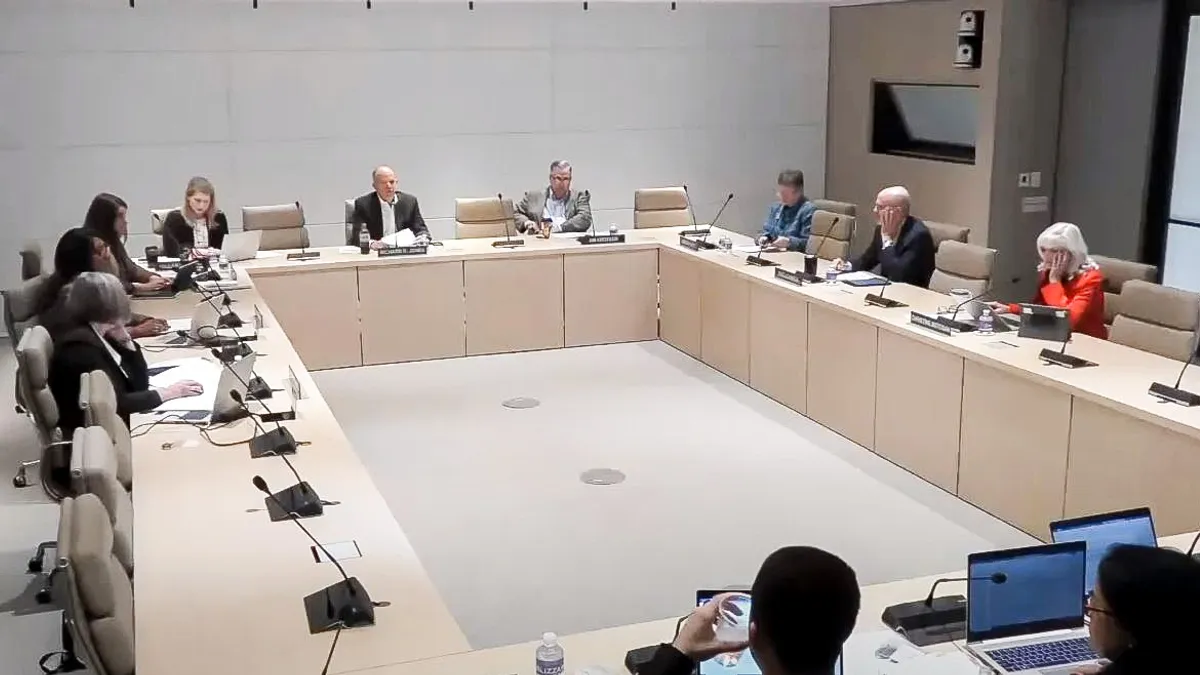Donald Trump looked on in a New York City courtroom Wednesday as his former CFO’s son, Jack Weisselberg, took the stand in the civil fraud trial against his father’s long-time employer.
Weisselberg, whose father Allen Weisselberg is a defendant in the lawsuit brought by New York Attorney General Letitia James against Trump, the Trump Organization and his associates, testified in detail about an ongoing close working relationship between the Trump Organization and his firm, New York-based lender Ladder Capital Finance.
The younger Weisselberg, a director at Ladder, described some of the five commercial real estate loans he said Ladder has made to the Trump Organization. The loans were extended on several of former President Trump’s marquee New York City properties, including Trump Tower, an office building at 40 Wall Street in New York City and Trump International, Weisselberg said.
Weisselberg, wearing an open-collared blue shirt and blazer and speaking in an even, business-like tone, said he typically first worked with his father on a potential loan, then would obtain documents on the properties from other employees such as former Trump Organization controller Jeffrey McConney to do due diligence, ultimately working toward a term sheet.
For example, in one case the attorney for the AG’s office asked about an email from his father in 2012 in which Allen Weisselberg said the Trump Organization was looking for a “forward commitment” of $65 million for a 10-year loan on Trump Tower property. Typically, Weisselberg said after initial conversations with his father he would then seek additional information about rent rolls, operating statements and other documents to better understand the property’s numbers.
While Ladder often securitizes some of its debt in commercial-mortgage-backed-security loan pools, the attorney for the AG’s office asked why the Trump Organization might be “skittish” about taking out a CMBS loan.
“It’s a public offering so the public offerings for all the top loans are released to the public,” Weisselberg said.
The testimony comes in the third week of the trial of the case that was filed in September 2022, which alleges that the former president — with help from his children and senior executives at the Trump Organization — falsely inflated his net worth by billions of dollars to secure bank loans for the company on more favorable terms than would otherwise have been available to the company, among other motives.
Trump’s lawyers have appealed a ruling from New York Supreme Court Judge Arthur Engoron — who found him liable for fraud in the case. The former president has derided the suit as politically motivated and his attorneys have argued that property appraisals are subjective.
In earlier testimony Friday the exchanges were more heated, with an attorney for the Trump team, Lazaro Fields, cross examining Doug Larson, a former executive director with real estate services firm Cushman & Wakefield who provided advice on real estate valuations to the Trump Organization.
Trump’s lawyers appeared to attack Larson’s credibility one day after he expressed surprise when told he was repeatedly cited as an outside expert in former Trump Organization controller McConney's valuation spreadsheets, The Associated Press reported.
“It’s inappropriate and inaccurate,” Larson testified, according to the Associated Press. “I should have been told, and an appraisal should have been ordered.”
At one point Trump appeared to have an audible reaction to the testimony that drew the judge’s rebuke. ”I’ll ask everyone to be quiet, particularly if it’s mean to influence a witness,” Engoron said.
James is seeking a $250 million ruling against Trump and his co-defendants and also wants the court to bar the former president and the Trump Organization from entering into commercial real estate transactions in New York for five years, and to permanently bar him from serving as an officer of a New York corporation.






















